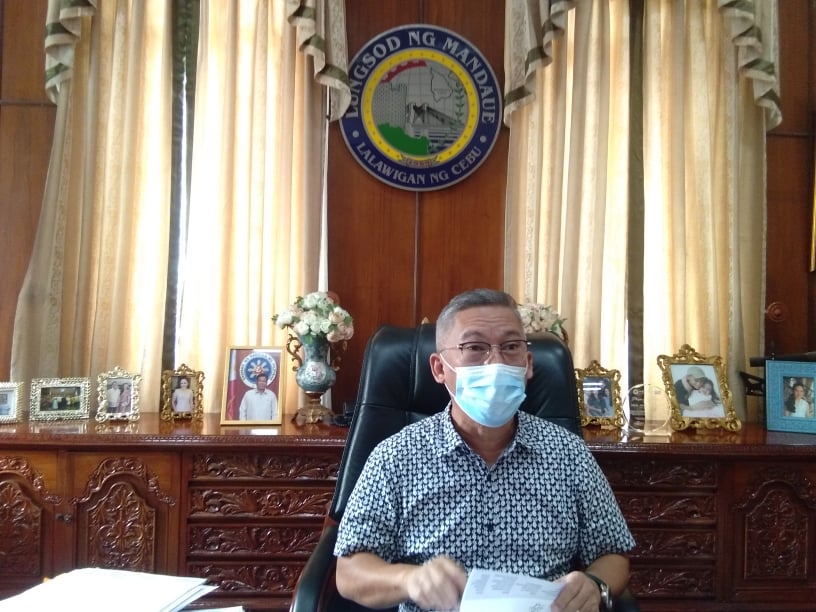
Mandaue City Mayor Jonas Cortes
MANDAUE CITY, Philippines — The Mandaue City government will strictly implement waste segregation at the source or in the houses and workplaces in the city.
Mayor Jonas Cortes said he wants to strictly implement waste segregation to help lessen the amount of garbage the city would collect.
“Yes, (striktohon) ato’ng hinay-hayon,” said Cortes.
Cortes said the city generates 269 tons of garbage per day, 36 percent of which are recyclables, 35 percent are residual waste, 27 percent non-recyclables, and 2 percent hazardous waste.
Architect Aracelli Barlam, head of the Mandaue City Environment and Natural Resources Office (MCENRO), said based on their data, every person in the city has a solid waste generation every day of about .627 kilogram.
The Mayor said the city had been implementing the ” no segregation, no collection” policy but there were still those who were not able to comply.
The move is pursuant to Republic Act 9003 or the Ecological Solid Waste Act of 2000, part of is waste segregation at source.
Cortes said if the waste is properly segregated, waste is much easier to recycle, less waste would go to landfills and other facilities cheaper for the city and better for people and the environment.
Barlam said the city aside from the hazardous wastes, is spending P4 million every month to dispose of the city’s waste.
The city throws its waste at the facility operated by the ARN Central Waste Management Inc. and GUUUN Corporation, a Japanese firm located in Consolacion town.
The Japanese firm converts plastic wastes are into “fluff fuel,” or shredded waste plastics, which they sold and used by cement companies, said Barlam.
Barlam said the city also has a solid waste diversion and livelihood program that was launched in 2019 to the 13 river and coastal barangays.
She said the program was stopped last year because of the pandemic and it was resumed only early this year.
“Giuna nato sila (13 barangays) kay silay pinaka vulnerable. Kung wa tay buhaton tabla ra ani mapobre ra ang siyudad sige’g binayad sa paglabay sa basura, where in fact we can find ways to divert or to find livelihood better ang duha. Madivert meaning ma compost, ma recycle, dili malabay dayun kay ma reuse nato or mapangitaan og income especially sa ato’ng mga barangays mao na we launched that last year,” Barlaare m said.
Barlam said that since every barangay is already aware of the kind of waste it generates, it can come up with ways to better handle its trash. Like for barangays whose top waste is biodegradable, the best thing to do is turn to compost, Barlam added. /rcg

